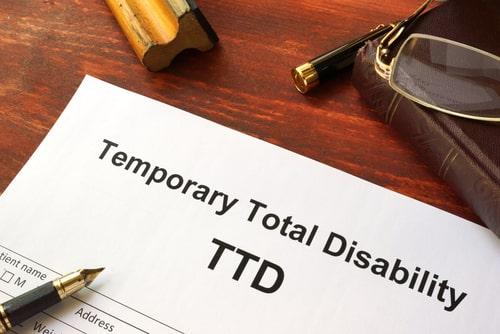When Are Total Disability Benefits Available Through Workers’ Comp?
 Work-related injuries can lead to physical, emotional, and financial hardship for workers and their families. In Illinois, injured workers will be eligible for workers' compensation benefits, as long as an injury occurred while they were working or arose out of their employment. Workers' comp benefits address medical expenses related to a work injury, and they also provide wage replacement for those who experience disabilities. In some cases, a person may be totally disabled, meaning that the injuries they suffered prevent them from returning to work and earning an income. In these situations, it is important to understand the total disability benefits that will be available through workers' compensation.
Work-related injuries can lead to physical, emotional, and financial hardship for workers and their families. In Illinois, injured workers will be eligible for workers' compensation benefits, as long as an injury occurred while they were working or arose out of their employment. Workers' comp benefits address medical expenses related to a work injury, and they also provide wage replacement for those who experience disabilities. In some cases, a person may be totally disabled, meaning that the injuries they suffered prevent them from returning to work and earning an income. In these situations, it is important to understand the total disability benefits that will be available through workers' compensation.
Temporary Total Disability (TTD)
Depending on the severity of an injury, a person may be unable to work while they are recovering. For example, a back injury may prevent a person from walking, standing in place for extended periods of time, bending over, lifting objects, or performing other work-related tasks. Especially serious injuries may even require a person to remain in bed or a seated position throughout the day, making it impossible for them to perform any work. For those who are unable to work at all during a period of recovery, TTD benefits will help cover some of the income they would have been able to earn during that time. A person may also receive these benefits if they have been approved for light-duty work by their doctor, but their employer is unable to accommodate them and provide them with a temporary position with duties that fit their limitations.
Temporary total disability benefits will be available when an employee is unable to return to work for more than three days. At this point, the employee may begin receiving benefits, and the amount they receive will be calculated as two thirds (66 2/3 percent) of the average weekly wages they earned over the 52 weeks immediately preceding their injury. These benefits will continue to be paid until the employee can return to the position they held prior to their injury or until a doctor determines that their condition has improved as much as possible (known as "maximum medical improvement" or MMI).
Permanent Total Disability (PTD)
Permanent disability benefits may be provided to a person who suffers a work injury severe enough to prevent them from ever returning to work. Certain types of injuries will automatically qualify a person to receive total disability benefits, including the permanent loss of use of both arms or hands, both legs or feet, both eyes, or any combination of two or more of these body parts. Other types of injuries may also qualify for PTD benefits if they make it impossible for a person to find any kind of work in a stable job market.
PTD benefits will be two thirds (66 2/3 percent) of the employee's average weekly wage, and they will be paid for the rest of the person's life. These benefits are intended to help cover the cost of daily living expenses and ensure that the worker can maintain a certain level of financial stability. Minimum and maximum limits apply, and the amount of benefits will be adjusted annually based on the cost of living.
Contact Our Bloomington Workers' Comp Disability Benefits Lawyers
Total disability benefits can provide financial stability for employees who experience serious physical limitations following a work injury. It is important for employees to understand their rights regarding workers' compensation, and they may need to respond to the denial of benefits by an employer or insurance company. At Kanoski Bresney, we can assist with applications for disability and other benefits, and we can appeal denied claims and help ensure that injured workers have the financial resources they need. To set up a free consultation and get legal help with these issues contact our Decatur workers' compensation attorneys at 888-826-8682.
Source:
https://iwcc.illinois.gov/content/dam/soi/en/web/iwcc/about/handbook/documents/handbook.pdf









